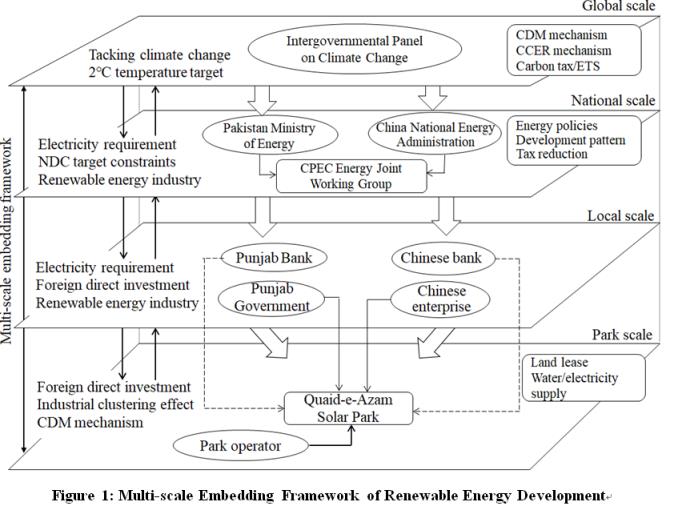Scientific Program
Keynote Session:
Oral Session 1:
- Carbon Management
Title: Unveiling China-Pakistan Solar Park Model towards Low-carbon Transition
Biography:
The main research interests of the speaker are Sustainable Development and Low-carbon Transition regarding urban, national and global scales. Up to now, about 50 peer-reviewed SCI/SSCI articles have been published in the aspects of economic geography, low-carbon transition, energy-water-land nexus, and sustainable development. The speaker gave a presentation in the UN Climate Change Conference (COP 25) in Madrid, Spain, and served as the reviewer for more than 20 internationally academic journals including Nature Communications, Applied Energy, Water Research, and Land Use Policy.
Abstract:
To address the challenges of climate change caused by the prevailing use of fossil fuels, the low-carbon transition is urgently needed as a major approach to realizing sustainable development in developing countries. Officially launched in 2015, China-Pakistan Economic Corridor (CPEC) provided opportunities for deep cooperation between China and Pakistan focusing on the energy, transportation, ports, and industrial cooperation. Under the CPEC, an increasing number of renewable energy projects have been funded, providing increasingly significant carbon emission avoided effects in Pakistan. Among the priority energy projects in the CPEC, the photovoltaic power stations in the Quaid-e-Azam Solar Park are among Pakistan’s representative solar energy projects. The development of the project is with the participation of multiple Chinese enterprises, including TBEA Xinjiang Sunoasis Co., Ltd. and Zonergy Company Limited. During the whole processes, the development model of the photovoltaic power stations gradually changed from the Engineering, Procurement, and Construction plus Operation and Maintenance model to the Build-Own- Operate model. Based on the multi-stage construction of solar power stations in the solar park, the land, infrastructure, and transmission facilities could be arranged, simplifying the procedures for the respective enterprises. Meanwhile, the construction and operation of the photovoltaic power stations are subject to the multi-scale embedding framework including resource endowments, industrial linkages, development plans, and institutional systems in the host countries. The construction of the solar park could provide references to promote low-carbon transition, improve energy institutional systems, fulfill carbon reduction commitments, and mitigate climate change, which is expected to provide policy implications for renewable energy development and low-carbon transition.

Title: Need for holistic data for holistic climate change mitigation and adaptation
Biography:
Pennan Chinnasamy has a PhD in hydrology, from University of Missouri, US and is an Assistant Professor with Indian Institute of Technology, Bombay - India, under the Centre for Technology Alternatives for Rural Areas, where his work primarily focuses on natural resources assessment, monitoring and management in rural regions. He is the founding director of the Rural Data Research and Analysis (RuDRA) lab, which is the first Big data lab for rural regions, housed in an academic institution in India. Over the past decade, Pennan has experience working in NGOs, national and regional government agencies and academic institutions, focusing on sustainable surface and groundwater management plans, climate change impacts, large data analysis and hydrological simulation models. His work has been recognized in many internationally peer reviewed journals, policy briefs and government reports (e.g. EPA, NEA- Nepal, World Bank, Asian Development Bank).
Abstract:
Statement of the Problem: In India there are many agencies that aim to aid sustainable development. Most of these agencies are federal or state government owned and are operated individually or under a specific ministry. Each agency, in order to formulate policies and rules, collect data and manages it. For example, a water resources department collects data on reservoir water levels, water demand and water supply for sustainably managing water supply schemes. Therefore, agencies are divided into themes/focus areas or departments and data is housed in each of these units individually.
Formulation of management/performance indices (e.g. drought index, flood index, unmet demand index) requires good observation data, and requires seamless/open access to data. It is therefore important to identify/develop frameworks that is sensitive to issues on data sharing, thereby creating unique pathways for collaboration towards a win-win scenario. On such scenario is the use of Big Data from remote-sensing platforms along with observed data for groundwater resources assessment. I used such frameworks for understanding, in India, the impact on groundwater due to increased agricultural productivity, pollution of groundwater, groundwater recharge due to canals, check dam performances and flood mitigation using Ganges aquifers. Under such scenarios, there is a need to identify big-data tools and methods that can be used to assess research gaps. In this presentation, potential methods to collect and collaborate data for rural management will be discussed.



